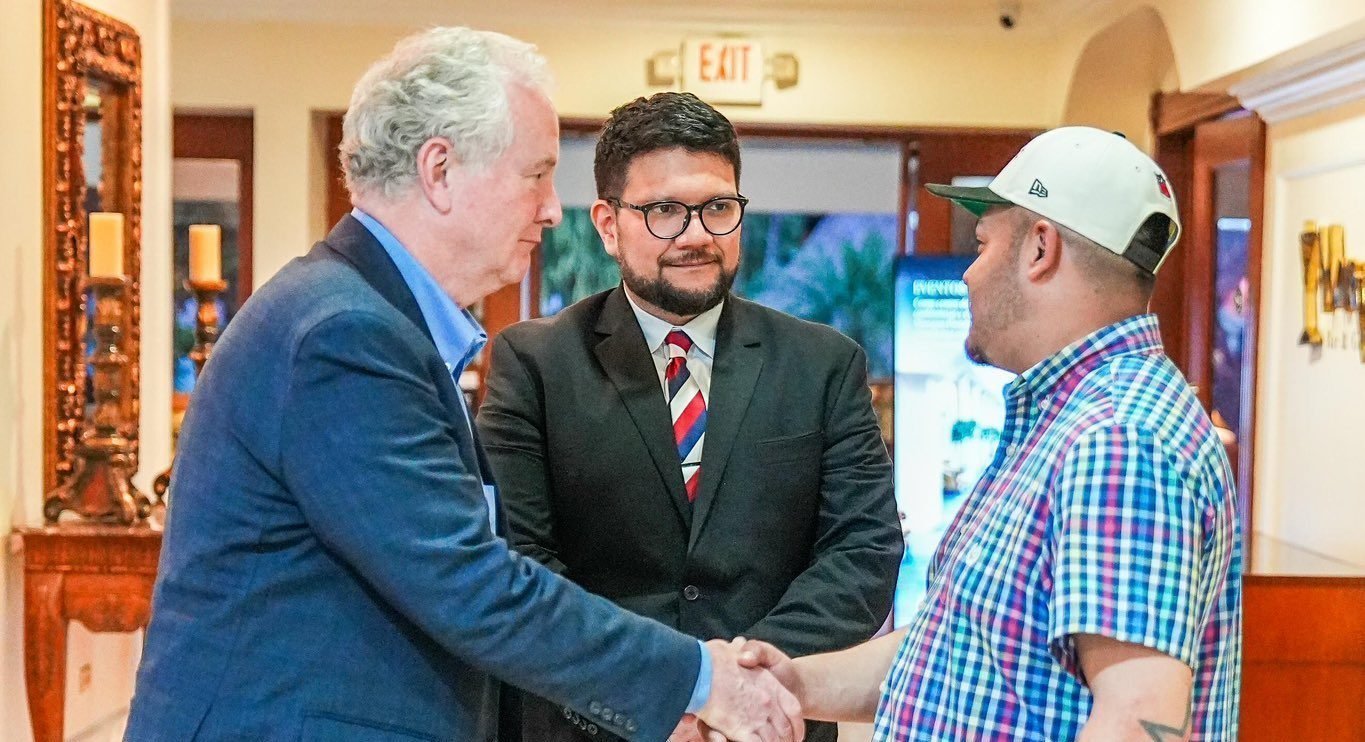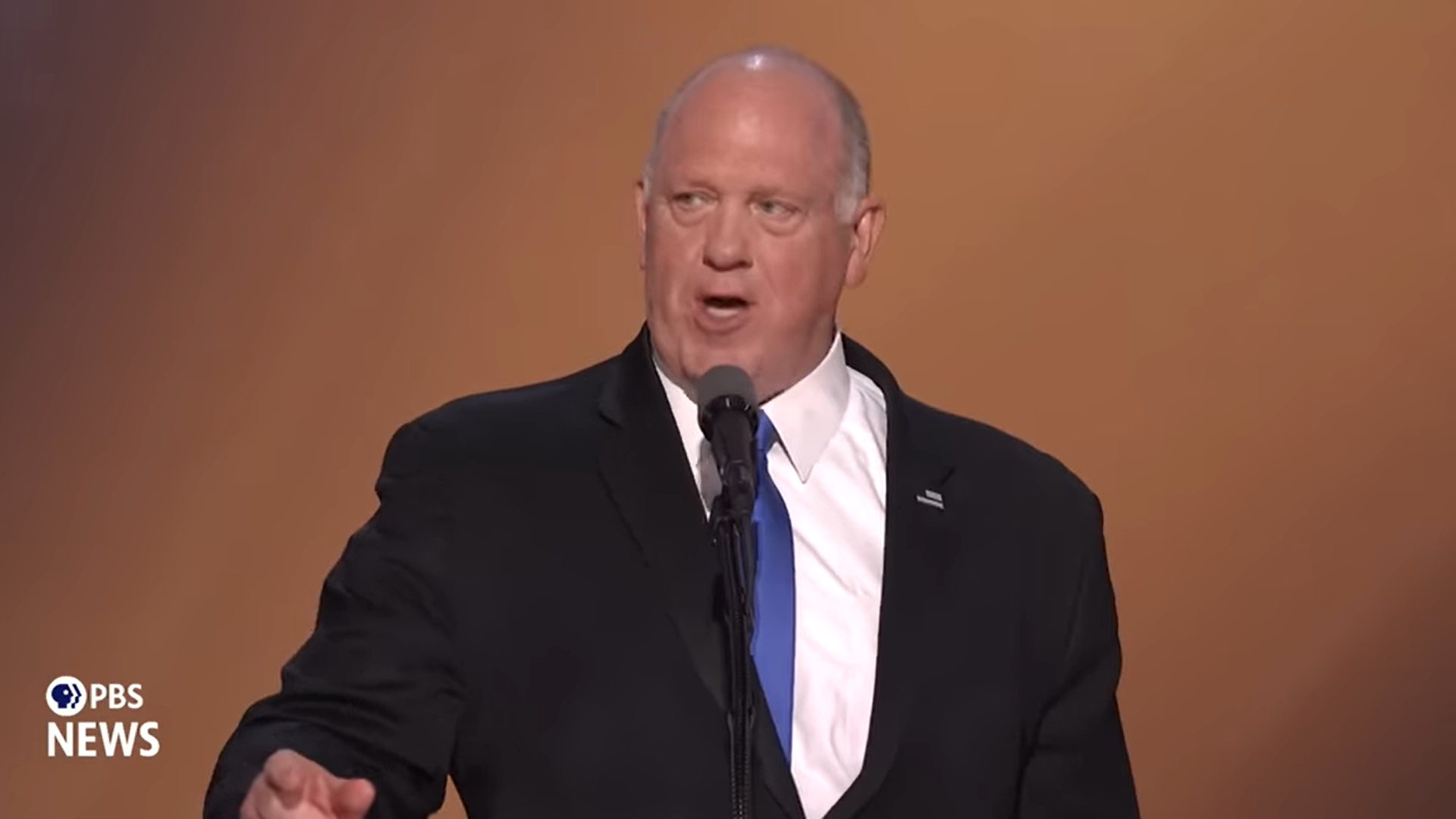Days after the release of anti-Israeli activist Mahmoud Khalil, a federal judge in Nashville, Tenn., plans to order the release of Kilmar Abrego Garcia pending trial, according to news reports.
However, unlike Khalil, Abrego Garcia is not expected to walk free. U.S. attorneys immediately challenged the Sunday ruling by U.S. Magistrate Judge Barbara Holmes, denying the U.S. government’s motion to keep Abrego Garcia in detention before his trial.
Holmes ruled that the government failed to show that Abrego Garcia poses a flight risk or a danger to the community. According to FOX 5 DC News, Abrego Garcia’s lawyers came to his defense Monday with a new court filing.
Holmes scheduled a hearing for Wednesday to discuss the conditions of his release, noting that the only thing U.S. attorneys and Abrego Garcia’s defense team seem to agree on is that her ruling won’t matter and that he will likely remain in custody.
However, it remains to be seen whether the Department of Justice or the Department of Homeland Security will take the lead in prosecuting Abrego Garcia for criminal charges or deporting him. The Associated Press reported that no date has been set for the criminal trial. Either way, it seems likely that ICE will take him into custody.
The acting U.S. attorney for the Middle District of Tennessee, Rob McGuire, argued on June 13 that the likely attempt by ICE to try to deport him was one reason to keep him in jail.
Abrego Garcia is the “wrongly deported Maryland father” and “the alleged MS-13 gang member and wife beater” who Democrats fought to return to the U.S., depending on the way you view details of the case.
In June, Attorney General Pam Bondi announced Abrego Garcia was being returned to the U.S. to face federal charges, alleging he was involved in a widespread human smuggling operation.
“Kilmar Abrego Garcia is a dangerous criminal illegal alien,” Tricia McLaughlin, a spokesperson for the Department of Homeland Security, wrote in an X post on Sunday.
Kilmar Abrego Garcia is a dangerous criminal illegal alien.
We have said it for months and it remains true to this day: he will never go free on American soil. https://t.co/UVv8vongBS
— Tricia McLaughlin (@TriciaOhio) June 22, 2025
“We have said it for months and it remains true to this day: he will never go free on American soil.”
In a 51-page memo released on Sunday, Judge Holmes denied the U.S. government’s motion to keep Abrego Garcia in detention before his trial.
“Overall, the strength of the factors weighing in favor of release outweighs all other factors in favor of detention, which compels Abrego Garcia’s release, particularly given the clear default under the law that persons who have not yet been convicted of a crime should be released pending trial,” Holmes said in her decision, per local outlet News Channel 5 Nashville.
The U.S. government responded with a motion to appeal the judge’s decision and is asking the judge to stay her impending release order.
In her ruling Sunday, Holmes said that determining whether Abrego Garcia should be released is “little more than an academic exercise” because ICE will likely detain him.
But the judge wrote that the government failed to prove that Abrego was a flight risk, that he posed a danger to the community or that he would interfere with proceedings if released, according to the AP report.
“Overall, the Court cannot find from the evidence presented that Abrego’s release clearly and convincingly poses an irremediable danger to other persons or to the community,” the judge wrote.
While Abrego Garcia does not have ties to Middle Tennessee, Holmes said she hasn’t seen enough evidence to suggest Abrego Garcia would not return to court.
Abrego Garcia was among a group of alleged gang members deported to El Salvador in March. After his deportation gained national media attention, Democratic lawmakers made several trips to El Salvador to pressure the Trump administration or El Salvador President Nayib Bukele to release him.
The federal indictment accuses Abrego Garcia of smuggling hundreds of people living in the country illegally, including children and members of the violent MS-13 gang, throughout the U.S. for money.
Abrego Garcia pleaded not guilty to smuggling charges on June 13 in a Tennessee federal court, stemming from a traffic stop in 2022. The Tennessee Highway Patrol found Abrego Garcia driving with an expired license and a carload of people who did not have luggage.
In briefings before the June 13 hearing, U.S. attorneys argued that Abrego Garcia posed “a significant danger to the community” for his alleged involvement in a massive human smuggling ring.
They also allege he trafficked drugs and firearms and abused the women he transported, although he is not charged with such crimes.
The prosecutor brought up past allegations of domestic violence against Abrego Garcia, including two orders of protection that Abrego Garcia’s wife sought in 2020 and 2021 against him for domestic violence.
Abrego Garcia’s attorneys have refuted the charges and the prosecution’s assertions that he is a danger or flight risk. They say the charges aren’t serious enough for detention.
Body camera footage from the traffic stop shows the exchange between officers and Abrego Garcia, who did speak some English. The officers discussed their suspicions of smuggling before letting him go. One of the officers says, “He’s hauling these people for money.” Another says Abrego Garcia had $1,400 in an envelope.
Abrego Garcia told troopers that he was traveling back home to Maryland after finishing a construction job in St. Louis, Missouri. Despite a lengthy traffic stop, Abrego Garcia was allowed to go on his way with only a warning after THP contacted Biden’s FBI who said to release him.
Department of Homeland Security Special Agent Peter Joseph testified that his office used license plate reader technology to determine that the SUV had not been anywhere near the St. Louis area in at least 12 months, News Channel 5 Nashville reported.
Instead, LPR data flagged the SUV around Houston, Texas, just days before the traffic stop.
Abrego Garcia’s attorneys have refuted the charges, claiming it’s a desperate attempt by the Department of Justice to justify his mistaken and highly publicized deportation.
DOJ officials launched the investigation weeks after the U.S. government deported Abrego Garcia and the Supreme Court ordered the Trump officials needed to facilitate his return, along with mounting public pressure to return him.
Abrego Garcia’s lawyers also told a judge that some government witnesses cooperated to get favors regarding their immigration status or criminal charges they were facing, the AP previously reported.



